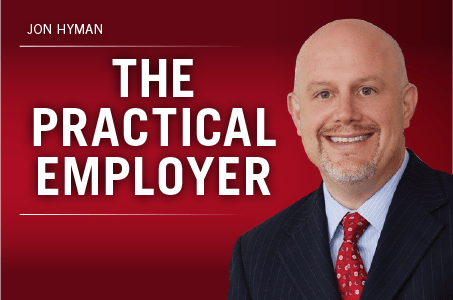Editor’s note: This post contains extremely graphic language in the context of the case described here.
“Bob is such a NASTY MOTHER FUCKER don’t know how to talk to people!!!!!! Fuck his mother and his entire fucking family!!!! What a LOSER!!!!”
“Hey, did you bring enough KFC for everyone?” “Go back to Africa, you bunch of fucking losers.” “Hey anybody smell that? I smell fried chicken and watermelon.”
You’d think that if any of your employees lobbed any of these bombs at a supervisor or coworker, you’d have no legal issue if you fired them. And you’d be right … usually.
Except, in the first example, the employee ended his obscene tirade with, “Vote YES for the UNION!!!!!!!”
The latter example was directed by striking workers walking a picket line to African-American replacement workers crossing that picket line. According to the National Labor Relations Board, the employees’ rights to engage in protected concerted activity trumps all.
The NLRB, however, might be changing its mind on these rules. Last week, the agency invited briefs on the issue of how far the law should go to protect profane or obscene workplace statements.
The National Labor Relations Board requests briefing on whether the Board should reconsider its standards for profane outbursts and offensive statements of a racial or sexual nature. In a notice issued today, the Board seeks public input on whether to adhere to, modify, or overrule the standard applied in previous cases in which extremely profane or racially offensive language was judged not to lose the protection of the National Labor Relations Act (NLRA).
In the specific case at issue, a union committeeperson, while arguing about employee cross-training, told a supervisor that he did not “give a fuck about [his] cross-training” and that he could “shove it up [his] fucking ass.”
Specifically, the board is looking for input on five issues:
- Under what circumstances should profane language or sexually or racially offensive speech lose the protection of the Act?
- How much leeway should employees engaged in section 7 activity be given, when their language if profane or otherwise offensive to others on the basis of race or sex?
- Should the Board continue to consider the norms of the workplace, particularly whether profanity is commonplace and tolerated, in judging the legality of these profane or obscene outbursts?
- To what extent, if any, should the Board continue to consider context — e.g., picket-line setting — when determining whether racially or sexually offensive language loses the Act’s protection?
- What relevance should the Board accord to anti-discrimination laws such as Title VII in determining whether an employee’s statements lose the protection of the Act?
I find all of the examples above to be abhorrent. The NLRB’s current rules require employers to suborn the worst degree of insubordination, or permit horrific racial or sexual harassment, all in the name of “protecting” employees section 7 rights under the NLRA.






